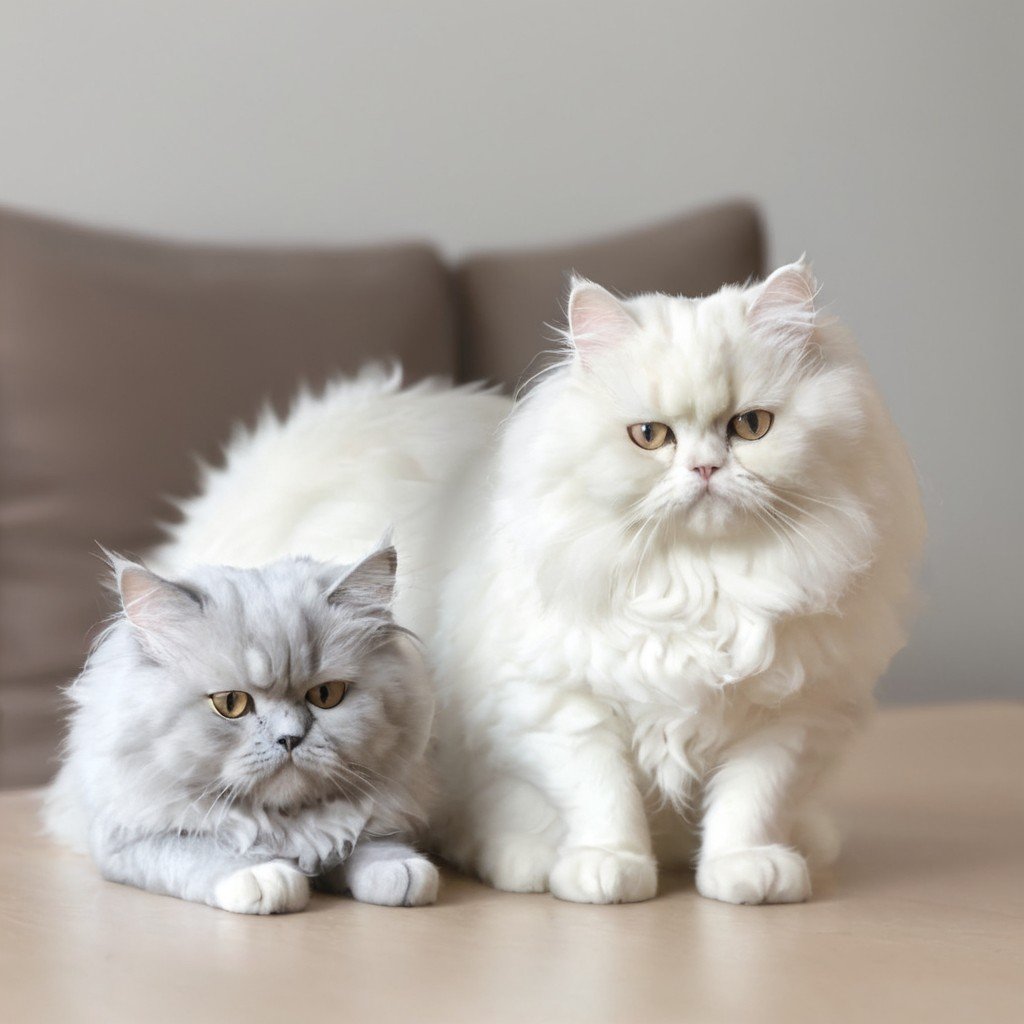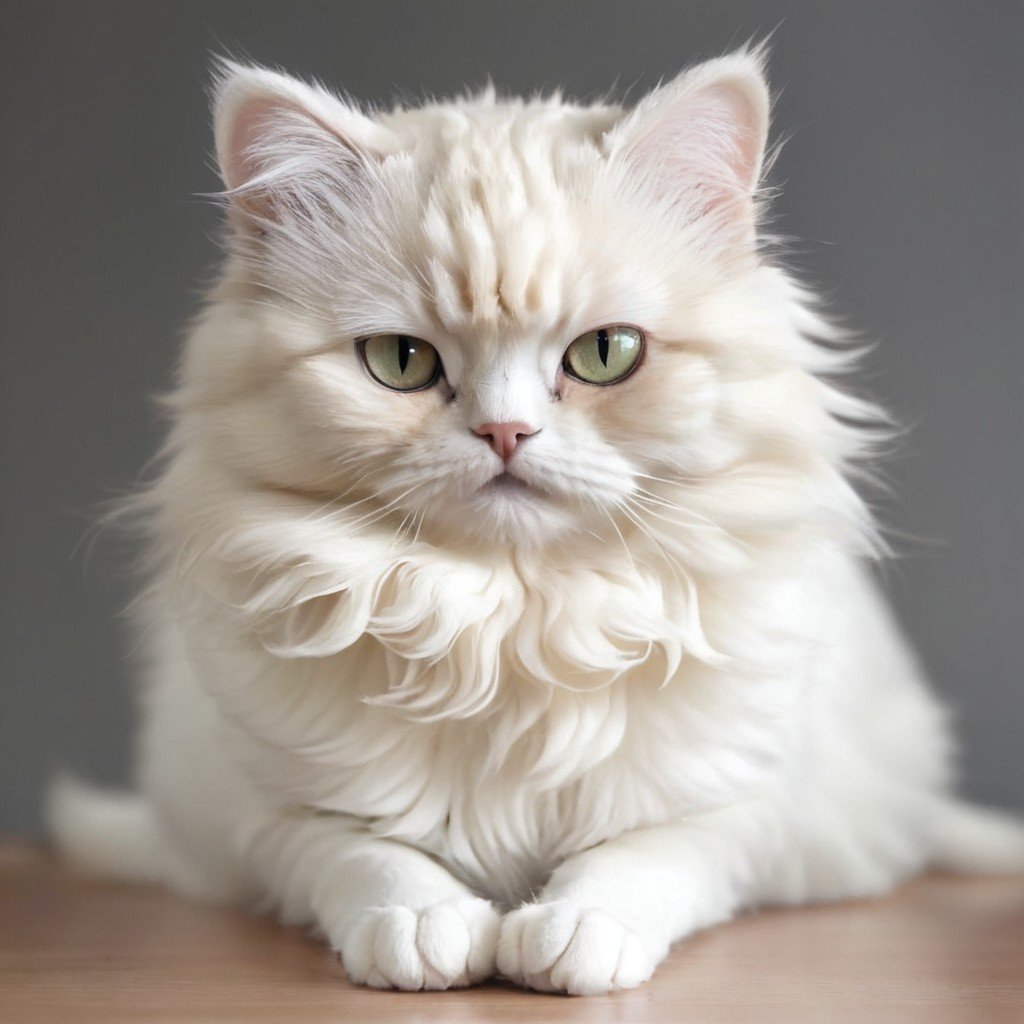Read 📖 or Listen 📻 in (12 minutes)

Persian cats are a popular breed known for their luxurious, long and flowing coats. They are one of the oldest cat breeds with a rich history and captivating origins. With their striking appearance and gentle nature, Persian cats make wonderful companions. In this blog post, we will explore the history, physical characteristics, personality traits, care and grooming, common health issues, and dietary needs of Persian cats. Whether you’re considering adopting a Persian cat or simply curious about this fascinating breed, this guide will provide you with all the information you need to know.
History and Origins of Persian Cats
The Persian cat breed has a fascinating history that dates back thousands of years. These elegant cats are believed to have originated in Persia (modern-day Iran) and were highly treasured by royalty and nobility. They were brought to Europe in the 17th century, where they quickly gained popularity. Today, Persian cats are cherished for their beauty and are one of the most beloved cat breeds worldwide.
Physical Characteristics of Persian Cats
Persian cats are known for their luxurious and long fur, which comes in a variety of colors and patterns. They have a broad and round head, with a short, flat nose and large round eyes. Their small ears are set wide apart, and they have a sturdy and muscular body. Persian cats have short legs and a graceful tail that adds to their overall elegance. Their adorable and sweet face is often described as “doll-like” and adds to their charm.
Personality Traits and Temperament of Persian Cats
Persian cats are known for their gentle and calm nature. They are generally easygoing and enjoy a quiet and peaceful environment. They are affectionate and enjoy being petted and cuddled. However, they can also be independent and reserved at times, enjoying their alone time. Despite their calm demeanor, Persian cats still have a playful side and enjoy interactive toys and games. Their loving and docile nature makes them great companions for individuals or families looking for a laid-back and affectionate pet.
Gentle and Calm Nature of Persian Cats
Persian cats are known for their gentle and calm nature, making them perfect companions for individuals and families. They have a serene demeanor and enjoy a peaceful environment. Persian cats are not prone to sudden bursts of energy or aggressive behavior. Instead, they prefer a relaxed and laid-back lifestyle. They are content to spend their days lounging around and enjoying the company of their owners. Their gentle nature makes them great pets for people of all ages, including children.
Independent and Reserved Personality
Persian cats are known for their independent and reserved personalities. Unlike some other cat breeds, Persian cats are not overly demanding of attention and do not seek constant interaction. They are happy to spend time alone, entertaining themselves with their own toys and exploring their surroundings at their own pace. Persian cats are also known for their reserved nature, often being cautious and observing their environment before becoming comfortable with new people or situations. This reserved personality adds to their mysterious charm and makes them the perfect companions for those who appreciate a calm and independent pet.
Care and Grooming for Persian Cats
Persian cats require regular care and grooming to keep their luxurious coat looking its best. Daily brushing is essential to prevent matting and tangles, as their long fur tends to easily become tangled. Bathing should be done occasionally to keep their coat clean, and nail trimming and dental care are also important for their overall health. Persian cats also benefit from regular check-ups with a veterinarian to address any health concerns and ensure they are in good condition.
Regular Brushing and Coat Care for Persian Cats
Regular brushing is crucial for maintaining the beautiful coat of a Persian cat. Their long, luxurious fur tends to easily mat and tangle, so daily brushing is necessary to prevent this. Use a high-quality brush or comb specifically designed for long-haired cats to gently remove any loose hair and prevent the formation of knots. This grooming routine not only keeps their coat looking its best but also helps prevent hairballs and skin irritations. It’s a bonding time too, as you can show your Persian cat love and affection while keeping their coat healthy.
Bathing, Nail Trimming, and Dental Care
Persian cats are typically not big fans of water, so bathing them should be done sparingly and with caution to avoid stressing them out. It’s important to use a cat-friendly shampoo and to properly dry their fur afterward to prevent matting. Nail trimming is also essential to prevent their nails from becoming too sharp or causing injury. Dental care is crucial as well, so regular brushing of their teeth, with specific cat toothpaste, is recommended to maintain their oral hygiene. Remember to approach these grooming activities with patience and gentleness to ensure a positive experience for your Persian cat.
Persian Cat Health and Common Issues
Persian cats are generally healthy, but they are prone to certain health issues due to their unique physical characteristics. Some common health problems that Persian cats may experience include eye conditions, such as cherry eye and excessive tearing, as well as respiratory problems and dental disease. Regular vet check-ups are important to detect and address any potential health issues early on. Pet owners should also provide a clean and stress-free environment to ensure the overall well-being of their Persian cat.
Understanding the Common Health Problems of Persian Cats
Persian cats are prone to certain health issues due to their unique physical characteristics. These include eye conditions such as cherry eye and excessive tearing, as well as respiratory problems and dental disease. Regular vet check-ups are important to detect and address any potential health issues early on. Pet owners should also provide a clean and stress-free environment to ensure the overall well-being of their Persian cat. By being aware of these common health problems and taking preventive measures, you can ensure your Persian cat stays healthy and happy.
Tips for Preventative Care and Regular Vet Check-ups
Regular vet check-ups are essential for the overall health and well-being of Persian cats. Here are some tips for preventative care and ensuring your cat’s health:
- Schedule regular vet visits: It’s important to take your Persian cat to the vet for routine check-ups and vaccinations. This allows the vet to assess their health, detect any potential issues early on, and provide necessary preventive care.
- Maintain a healthy diet: Feeding your Persian cat a balanced and nutritious diet helps strengthen their immune system and prevents certain health problems. Consult your vet for recommendations on the right food and portion sizes for your cat.
- Provide regular grooming: Persian cats have long, luxurious coats that require regular grooming. Brush their fur daily to prevent matting and hairballs. Additionally, clean their ears, trim their nails, and regularly brush their teeth to maintain good oral hygiene.
- Promote a stress-free environment: Stress can impact a cat’s health. Create a calm and peaceful environment for your Persian cat by providing a designated quiet space, minimizing loud noises, and ensuring they have opportunities for mental and physical stimulation.
- Monitor their weight: Persian cats are prone to obesity, which can lead to serious health issues. Make sure to monitor your cat’s weight and maintain a healthy diet and exercise routine to prevent obesity.
By following these tips and staying proactive in your Persian cat’s care, you can help prevent potential health problems and ensure they live a long and healthy life. Remember, always consult your vet for personalized advice and guidance.
Persian Cat Diet and Nutrition
Persian cats have unique dietary needs that require special attention. Their diet should consist of high-quality cat food that is specially formulated for their breed. Persian cats have a tendency to gain weight, so it is important to monitor their portion sizes and avoid overfeeding. Additionally, make sure they have access to fresh water at all times. Consult with your vet for specific dietary guidelines and recommendations for your Persian cat.
Nutritional Requirements for Persian Cats
Persian cats have unique nutritional needs that should be met in order to keep them healthy and happy. They require a well-balanced diet that is high in protein and low in carbohydrates. Look for cat food specifically formulated for Persian cats, as it will contain the necessary nutrients and vitamins to support their coat and overall health. It’s important to consult with a veterinarian to determine the appropriate portion sizes and feeding schedule for your Persian cat.
Feeding Guidelines and Meal Options
When it comes to feeding your Persian cat, it’s important to follow some guidelines to ensure they are getting the right nutrition. Here are some tips to keep in mind:
- Portion control: Persian cats are prone to weight gain, so it’s important to measure their food and not overfeed them.
- High-quality cat food: Look for a high-quality cat food specifically formulated for Persian cats. These foods will have the right balance of nutrients to support their unique needs.
- Wet vs. dry food: It’s recommended to feed a combination of wet and dry food. Wet food helps keep them hydrated, while dry food helps with dental health.
- Meal frequency: Persian cats should be fed small, frequent meals throughout the day to prevent overeating and reduce the risk of hairballs.
- Treats in moderation: Treats can be given as rewards, but make sure to choose healthy options and not overdo it.
Remember, every cat is different, so it’s best to consult with a veterinarian to determine the specific feeding guidelines for your Persian cat.
Is a Persian Cat Right for You?
Before adopting a Persian cat, it’s important to consider if they are the right fit for you. Persian cats require regular grooming, attention, and care due to their long, luxurious coats. They thrive in a calm and peaceful environment, so if you’re looking for a low-energy, gentle companion, a Persian cat could be the perfect choice. Just make sure you’re willing to invest time and effort into their grooming needs.
Tips for Finding a Reputable Persian Cat Breeder
When looking for a Persian cat breeder, it’s important to do thorough research and ask the right questions. Here are some tips to help you find a reputable breeder:
- Seek Recommendations: Ask friends, family, or local veterinarians for recommendations on trusted Persian cat breeders.
- Do Online Research: Look for breeders with positive reviews, a professional website, and transparent information about their breeding practices.
- Visit the Breeder: Set up a visit to meet the breeder in person. Observe the conditions in which the cats are kept and ask about their health care practices.
- Ask Questions: Inquire about the breeder’s experience, genetic testing, vaccination protocols, and the socialization of their kittens.
- Request Health Certificates: Ask to see health certificates for both the parents and the kittens to ensure they are free from any genetic or hereditary diseases.
- Contract and Guarantees: A reputable breeder will provide a written contract outlining their responsibilities and any guarantees they offer regarding the health and temperament of the kitten.
Remember, finding a reputable Persian cat breeder takes time and effort, but it’s essential for the wellbeing of your future furry companion.
Citation
- https://www.aspcapetinsurance.com/resources/persian-cat-facts
- https://www.purina.co.uk/find-a-pet/cat-breeds/persian-long-hair
- https://bowwowinsurance.com.au/cats/cat-breeds/persian
- https://www.dutch.com/blogs/cats/persian-cat
- https://www.thehappycatsite.com/doll-face-persian
- https://en.wikipedia.org/wiki/Persian_cat
